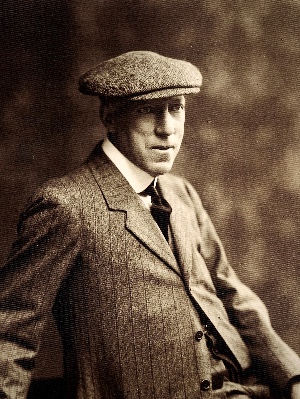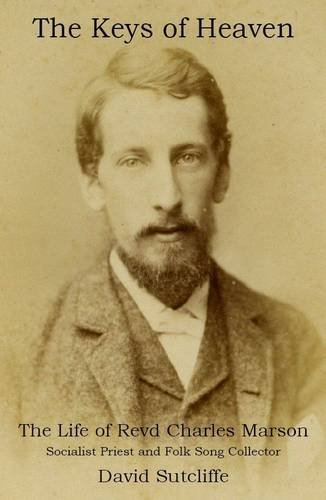Barker, E Phillips
Dancer
Collection date:
Area: Nottinghamshire
Dr E Phillips Barker (1878-1951): Edward Phillips Barker was a lecturer (then professor) in Classics at University College, Nottingham. From 1911 he gave Sharp editorial advice (reading and criticising the proofs) for several Morris Books and Sword Dance Books. In the Preface to Sword Dances of Northern England Part I Sharp thanked Barker for ‘materially helping (him) in the writing of the Introduction of which he is to be regarded as joint-author’¹. Barker’s role in influencing or at least consolidating Sharp’s changing theories about folk dance has not yet been analysed. He was first in correspondence with Sharp in November 1909, commenting on variations of stepping in different morris traditions CJS1/12/2/2/1.
Sharp had been moving away from his original (and provisional) thesis that the morris dance was ‘Moorish’ in origin (from Spain), as proposed in the Morris Book 1907 (1st ed.), but yet he felt that a ‘Merrie England’ antiquarian explanation was not an adequate story either². As he collected more morris dances and then sword dances after 1910, he moved to a new position that these dances were ‘survivals of some primitive religious ceremonial’³ (quote from Morris Book I 2nd ed 1912 p11). Back in June 1910, at a concert given by the women’s dance team from the SW Polytechnic at the Queen’s Small Hall, a reporter noted Sharp’s comments that ‘the origin of the morris is hidden in antiquity but it is certainly the surviving form of an ancient ceremonial’*.
In this policy shift Sharp was probably influenced by Alice Gomme (see her profile) but did his own background reading and was prepared to quote from EK Chambers’ book ‘The Medieval Stage’(Clarendon Press 1903)**. Another book Sharp references - in Sword Dances Book Part III p15 (1913) - is Jane Ellen Harrison’s ‘Themis’ (Cambridge University Press 1912). It’s likely that it was E Phillips Barker, as a classics scholar, who introduced Sharp to this newly published book***. Further research into Barker’s academic career would be helpful.
E Phillips Barker was a member of the English Folk Dance Society from April 1912 and later became President of the Nottingham branch. He was an enthusiastic dancer and teacher of folk-dancing, attending the Stratford Summer Schools and achieving his advance folk-dance certificate in 1914. He also learned rapper dances and took up the Northumbrian small pipes.
He actually wrote little himself on the subject of folk dance – e.g. an article on ‘The presence of women in Processional Traditions’ in the Journal of the EFDS vol1 no.2 (1915). His harsh criticism of the Mary Neal-Frank Kidson book ‘English Folk-Song and Dance’ (Cambridge 1915) left him open to some counter-criticism.
Edward Phillips Barker was born in Swinton nr Rotherham, Yorkshire on 6/6/1878, only child of Edward Barker Snr, an earthenware manufacturer (191 employees) and his wife Ellen (née Hodges). He was baptised at Mexborough church on 7/7/1878. Edward Barker Snr retired and moved to Hampstead in London (1891 and 1901 censuses). Probably Sharp met the Barker family at this time, perhaps at a lecture held at the Hampstead Conservatoire, of which Sharp was Director (1896-1905). Their house in Boundary Rd was just round the corner.
E Phillips Barker studied at both Oxford and Durham Universities. He married Augusta Emma Pritchard on 29/9/1906 at Dewsbury, Yorks. She was 38, a writer and author, born in Cape of Good Hope, South Africa; they had no children. In 1915 he joined the Royal Army Medical Corps. After Augusta’s death in 1917, E Phillips Barker was remarried to Dorothy Wilson in January qr 1937. He died on 13/3/1951 in Nottingham.
¹ Quoted by Maud Karpeles in her obituary of E Phillips Barker Journal of the EFDSS vol6 no.3 1951 p104. Maud praised Barker’s ‘technical and scholarly help… a most valuable collaborator’.
² Sharp was upset by the Punch cartoon ‘Merrie England once more!’ in November 1907.
³ The antiquarian Parker Brewis was less sure of Sharp’s theory of origins, especially as regards sword dances (see his profile).
* Report in Daily Telegraph and Courier Wed 1 June 1910.
** Sir Edmund Chambers (1866-1954) was a literary and Shakespearean scholar. His book The Medieval Stage can be read online at www.archive.org (pp90ff and pp195 are most relevant).
*** Jane Ellen Harrison (1850-1928) of Newnham College Cambridge was an expert in Greek art and archaeology and her book ‘Themis’ was subtitled ‘A study of the Social Origins of Greek Religion’. In The Sword Dances Part III p15 Sharp quotes Professor Gilbert Murray’s contribution to the Themis book (pp341-363). The book can be viewed online at www.archive.org Murray was Professor of Greek at Oxford University.
Note: Sharp was aware of academic disagreements over the work of both Jane Harrison and Edmund Chambers – see his letter to Paul Oppé 24/2/1922: type CJS1/12/15/2/8 into vwml search box.
Thanks to Matt Simons for his help with this profile. His thesis ‘Morris Men: Dancing Englishness c1905-1951’ is an ethesis at De Montfort University www.dora.dmu.ac.uk (pp66-72 are relevant).

